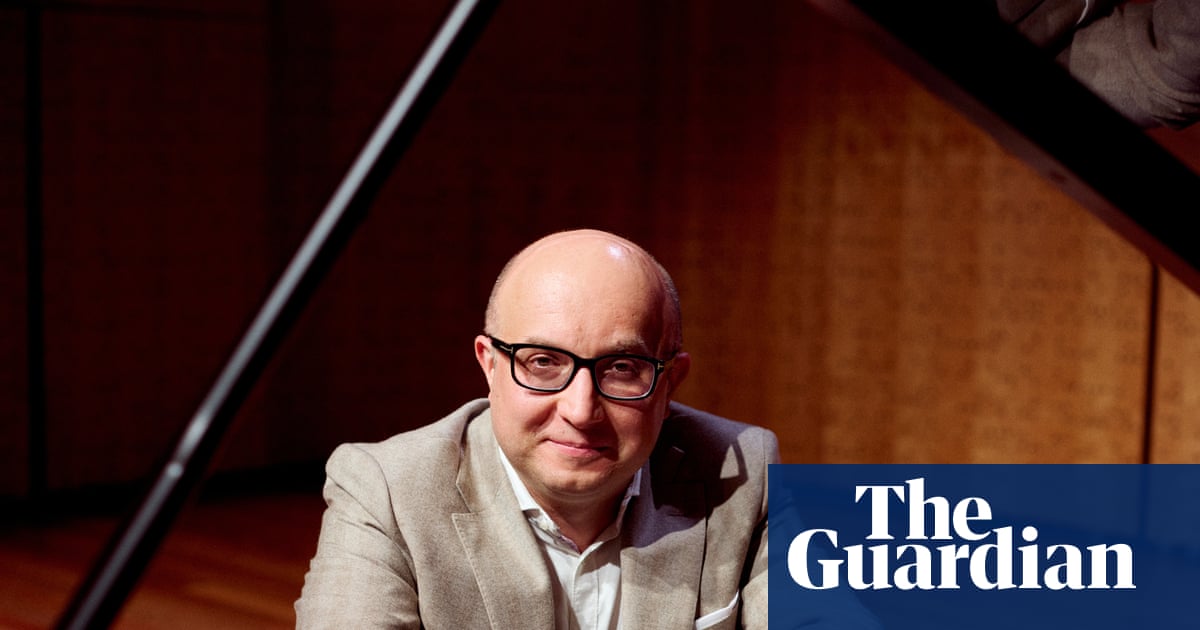Youthful and rebellious is how Alexander Gavrylyuk describes Shostakovich’s Piano Concerto No 1, the work with which he will mark his debut appearance with the Australian Chamber Orchestra on Friday.
“It’s a work where he fights to be heard,” says the Australian-based virtuoso, speaking from a waterside cafe a stone’s throw away from the ACO’s Walsh Bay home. “One gets a feeling that it’s been written by someone cornered who is trying to remain an individual in resistance to the system.”
And yet, bleak it is not. There is much humour to be found in the notoriously neurotic yet brilliant composer’s early work, Gavrylyuk says: “Laughter through clenched teeth, so to speak.”
Like Shostakovich, Gavrylyuk quietly rejected the strictures of a regimented Soviet-era approach to artistry, but at a much earlier age. Coming to Australia as a teenager only seven years after the iron curtain fell, the sense of light, space and personal freedom he instantly experienced on arriving in Sydney was exhilarating.
The Ukraine he had left behind was “still very closed, still very Soviet” in most ways, he says; a country where gifted children were drilled with military precision and concert pianists were “produced like in a factory”.
“It was a place where you did not express yourself,” he recalls. “You followed the path that was given to you by the hierarchy, and that in itself is completely opposite to what music is all about – the freedom of expression, the freedom of creation.”
Practising for up to 10 hours a day, Gavrylyuk gave his first concert performance at the age of nine. His fondest childhood memories are those of spending rare breaks away from the keyboard, such as visiting the countryside with his grandmother.
Gavrylyuk was only 13 when he arrived in Australia as part of a teenage troupe of gifted young pianists offered full scholarships by the privately run Australian Institute of Music. The teenager and his four young Ukrainian peers dazzled audiences at school with their precocious virtuosity. At 15, Gavrylyuk returned to his homeland to collect first prize and the gold medal at the Vladimir Horowitz competition. By the age of 21 he had achieved a trifecta, having won the Hamamatsu and Arthur Rubinstein international piano competitions.
Back then, winning was everything, and competitions were considered a stress-riddled rite of passage. Much like its athletes, musically gifted prodigies were held up to the capitalist world as symbols of Soviet superiority. But in many cases, Gavrylyuk says, the system churned out “broken individuals”.
“[Competitions] open doors, they can be really helpful. But it is unfortunate to see music as a competitive activity,” he says. “Music is a uniting force … if one sees it as a festival, rather than a competition, then that is wonderful.”
In any Gavrylyuk performance, there remains plenty of old Russian school-style keyboard pyrotechnics – but as the Times’ Anna Picard wrote in her review of his BBC Proms performance of Rachmaninov’s Piano Concerto No 3 in 2017, there is much more to him than just technical brilliance: “It is emotionally gripping, structurally thoughtful, and deeply musical,” she wrote of the performance.
As Classical Source music critic Peter Reed put it, Gavrylyuk’s “presence harks back to the old, formal Russian style of pianism – white tie and tails, impeccable stage manners, and plenty of old-fashioned performance histrionics – eyes gazing heavenwards, rapt expressions, the pianist as artwork – with playing that brings together grandeur, nobility, dazzling virtuosity and a sublime sense of style”.
Here’s a taste of Gavrylyuk playing “the Rach 3” – a famously difficult piece which was popularised after the release of the film Shine.
after newsletter promotion
Gavrylyuk considers the ACO’s decision to pair Shostakovich with the joyful ode to jazz-era New York, Rhapsody in Blue – George Gershwin’s self-described homage to the “musical kaleidoscope of America, of our vast melting pot” – a masterstroke in programming.
“On one side you have this darker perspective from the Soviet era … and then you have this wonderful exuberance, the swagger … the lack of constraints, lack of regulation, lack of anything really,” he says.
Despite his global career and 13 years living in Germany and the Netherlands, Gavrylyuk, his wife and their two daughters have called Sydney home since making the decision to “wait the storm out” during the pandemic. “But we got too attracted to Sydney. We loved it here too much, and the girls started schooling here, so we’re staying.”
Now approaching middle age, Gavrylyuk continues to set himself new challenges, including widening his focus beyond the Russian repertoire.
“I’m so fortunate to have a huge repertoire but I am passionate about diversifying,” he says. “There’s always a stigma attached to a name like mine to play Russian composers’ works … well, maybe I shouldn’t use such a strong term. But it’s definitely something that comes with having my background.”
